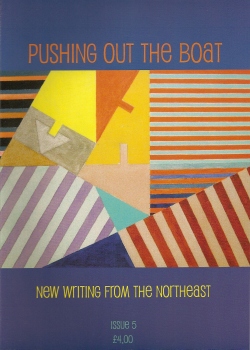© Haworth Hodgkinson 2006–2017
The copyright in all material appearing on this website remains with the author.
No part of this website may be reproduced, stored in a retrieval system, or transmitted,
in any form or by any means, electronic, mechanical or otherwise, without the prior
permission of the copyright owner.
|
Wooden Soup
Haworth Hodgkinson
Docherty's soup was famed throughout the West Highlands, at least among those who
knew about soup.
Ever since his father died, he had left the cottage alone each morning with his
trolley and headed deep into the wooden forest to collect the giant mushrooms that
only he could find. Those who spent their working hours in the urban centres of
Plockton or Stromeferry might have envied him the silence of the forest, but for
Docherty it was the only life he knew, and he had no time for sentimentality if
he was going to gather the harvest he needed for the day's soup. His work was hard,
but rewarding.
Round about lunchtime you would often see him emerging from the forest with his
trolley neatly packed with mushrooms, solid and firm, sometimes so fresh you could
still see the blood trickling down their caps and forming congealing drops around
the rim.
Docherty filled a large vat with fresh water from the nearby river, adding half
a bucket of seawater for its salt content, and perhaps a little bladderwrack for
extra flavour. He lit a wooden fire beneath the vat, and, whilst the water was coming
to the boil, sponged down the mushrooms and took them into the shed. He powered
up the circular saw that had been his father's downfall, and sliced the mushrooms
into thin discs, carrying them out a bucketful at a time and throwing them into
the vat.
The soup was left to simmer for the rest of the afternoon, whilst Docherty swept
the floor of the shed. He always kept the sawdust, aware of its wooden spore content,
and maybe once a week he would take the accumulated dust back to spread on the forest
floor.
In the evening the office workers of Plockton and the port labourers of Stromeferry
would make their way towards Docherty's croft. Some rode bicycles, and those who
came by car had to park in a field at the end of the road. Bus drivers knew to let
passengers off at the gate.
When the soup was nearly ready, Docherty would throw in a few sprigs of flowering
gorse, rhododendron buds, or whatever aromatic material came to hand at the time
of year. After a few minutes further simmering, he began to ladle the soup into
wooden bowls and handed it out to his visitors.
Docherty couldn't take the soup himself because of his stomach, but the woman from
the supermarket at Balmacara would always bring him a tin of own-brand barley broth,
and that kept him happy and well-nourished. Meanwhile he watched with satisfaction
as his guests savoured the soup of the day. Some chatted as they contemplated its
unique flavour. ‘Docherty's excelled himself tonight,’ they would agree,
though there was always some connoisseur who could remember an even better soup
one night back in 1976, shortly after Docherty Senior had died. Others stood or
sat in silent appreciation as the clouds turned red and the sky flickered green
and indigo.
As night fell, the expressions on the faces of the soup drinkers gradually turned
to wood.
Written 2004
Published in Pushing
Out the Boat Issue 5, 2006
(Aberdeenshire Council)

|